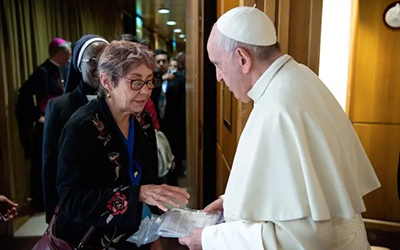How to End the History of Clerical Child Sexual Abuse in the Catholic Church

Public Lecture Theatre (PLT), Old Arts (Building 149)
MapIn this public lecture, visiting Macgeorge Fellow Professor Nancy Scheper-Hughes will explore how we can end the history of child sexual abuse in the Catholic Church. Never one to shy away from controversy, her talk will be based on three decades of studying and intervening in the global 'traffic in children' for sexual gratification by Catholic priests, bishops and cardinals. Drawing on memoir, ethnography, Church history, Canon Law and political theology, Professor Scheper-Hughes will explain the foundational causes, ugly consequences and missed opportunities by the Vatican to end the clerical sexual abuse of children once and for all. The School of Social and Political Sciences' own Dr Dave McDonald, a criminologist whose research explores institutional child sex abuse and the related Royal Commission, will act as a discussant and offer a local perspective.
This event is supported by the Macgeorge Bequest.
Presenter
Professor Nancy Scheper-Hughes, Professor of Medical Anthropology
Nancy Scheper-Hughes is Professor of Medical Anthropology at the University of California, Berkeley. Her work focuses on the anthropology of the body, hunger, illness, medicine, psychiatry, mental illness, suffering, violence, and genocide which has broad application beyond her field. For the last decade, Scheper-Hughes has been involved in study of global organ trafficking for transplant patients and she currently advises the World Health Organization in this capacity. Among her most famous works are the books: Saints, Scholars and Schizophrenics: Mental Illness in Rural Ireland (1979), Death without Weeping: The Violence of Everyday life in Brazil (1993), Violence in War and Peace: An Anthology (2003), and Commodifying Bodies (2002). In addition to being an eminent scholar, she has been a lifelong activist across a range of issues.